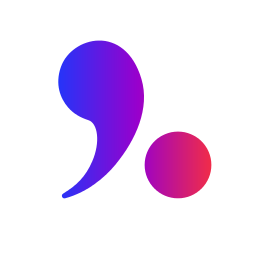How to be fluent in English in 3 months

While we all certainly wish that languages could be automatically downloaded into our brains so we could be fluent instantly, unfortunately, we haven’t quite gotten that far with technology. Learning a language still takes a good amount of elbow grease. But it can still be a really fun process!
The more time you invest into learning a language, the faster you can learn it. So, here are a few tips for becoming fluent in English in 3 months. I feel your struggle, but it is possible!
- 1. Define what “fluent” means for you
- 2. Set a clear goal
- 3. Learn grammar basics and sentence structure
- 4. Get a tandem partner
- 5. Form a micro-habit
- 6. Use gamification techniques
- 7. Use the right resources
- Can I really become fluent in English in 3 months?
- How much time should I dedicate daily to learning English in 3 months?
1. Define what “fluent” means for you
To start off, let’s first define the word “fluent”. According to the Merriam Webster online dictionary, a person is fluent in a language when they are “capable of using a language easily and accurately”. That definition is pretty vague and can mean different things for different people.
As a result, our first advice is to make your own definition of fluent. Does it mean that you can sit at a table full of native English speakers and keep up with the conversation? Does it mean you can speak with clients over the phone in business English easily and comfortably? Or maybe you need a certain level of English for a particular test?
Whatever your purpose is for learning English, rather than saying “I need to become fluent”, ask yourself questions like the examples above and set your goals based on this. By setting your own goals for fluency, it’s easier to track how close you are to achieving them and you also feel more accomplished once you get there.
And if you only have two months, the Lingoda Sprint could be the perfect option for you: It is a two-month intensive language learning challenge designed to rapidly enhance your English proficiency. Participants can choose between two options:
- Sprint: 15 classes per month, totaling 30 classes over two months.
- Super Sprint: 30 classes per month, totaling 60 classes over two months.

Learn English with Lingoda
How it works

2. Set a clear goal
Now that you defined what fluency means to you personally, it's time to set your goal. So ask yourself, how do I become fluent in English in 3 months? One way of doing it is the SMART framework (Specific, Measurable, Achievable, Relevant, Time-bound). It helps you create goals that are realistic and motivating. For instance, aim to learn 500 new words in three months, practice speaking for 10 minutes daily without hesitation, or master three key grammar concepts each week. These focused objectives provide a clear roadmap and help track progress effectively.
3. Learn grammar basics and sentence structure
Mastering basic grammar and sentence structures is crucial for building a strong foundation in English. Instead of memorizing complex grammar rules, focus on learning through practical examples, which makes the process more intuitive and relatable. Prioritize commonly used tenses, such as the present simple, past simple, and future simple, along with basic sentence patterns like subject-verb-object structures. Practice forming simple and accurate sentences, such as “I am going to the store” or “She likes reading books.” By mastering these essentials, you’ll gain the confidence to express yourself clearly and effectively in everyday situations.
4. Get a tandem partner
This point I can’t emphasize enough, because it helped me so much with Spanish and German. A tandem partner typically works like this:
- Search for someone who is a native English speaker and wants to learn a language you are already fluent in (there are many Facebook groups for this).
- Meet once a week for a minimum of 60 minutes.
- Within this time, speak 30 minutes of English and then 30 minutes of your tandem partner’s required language.
Speaking with a tandem partner once a week gives you the opportunity to speak outside of a regulated class setting and learn how English native speakers communicate in real life. When done in addition to Lingoda’s Language Sprint, it’s a surefire way to get you closer to achieving your English fluency goals within 3 months.
5. Form a micro-habit
Micro-habit formation involves integrating small, manageable practices into daily routines, such as learning three new words during morning coffee or speaking one sentence in English every time you check your phone. You could also practice a single sentence on your daily commute. Over time, these tiny efforts accumulate, creating a powerful routine that keeps you progressing toward fluency without feeling overwhelmed.
6. Use gamification techniques
Gamification techniques can make language learning fun and engaging by turning the learning process into a game-like experience. Use language apps that offer point systems, badges, and leaderboards to track progress and foster friendly competition. THis will motivate you to keep going! Setting personal challenges, like completing a vocabulary quiz withinor earning rewards for daily streaks, keeps motivation high and transforms learning into an enjoyable. Using an app could be part of your SMART goal setting since you can easily measure it as a daily activity!
7. Use the right resources
Having the right resources can significantly accelerate your English learning journey. Apps like Duolingo, Memrise, and Babbel offer interactive lessons, while platforms like Preply and italki connect you with professional tutors. For affordable or free options, explore YouTube channels such as BBC Learning English a or join online communities like Reddit’s r/EnglishLearning for peer support. You can also listen to TED Talks from language experts such as Benny Lewis on rapid language hacking. Combining these resources ensures a comprehensive and flexible approach to mastering English.
For fast progress try Lingoda's English courses: We offer structured, live online classes with certified teachers, flexible schedules, and tailored feedback to help you become fluent in English in 3 months!

Learn English with Lingoda
How it works

Can I really become fluent in English in 3 months?
Yes, you can become fluent in English in 3 months. With dedication, consistency, and the right strategies you will make progress fast. While full mastery may take longer, focusing on immersive techniques, setting realistic goals, and practicing daily can help you communicate effectively and confidently in a short time.
How much time should I dedicate daily to learning English in 3 months?
There is a debate about the amount of daily study time to achieve fluency in three months, depending on your starting level and goals. Some recommend dedicating 1-2 hours daily for consistent progress, while others argue that immersive, all-day learning may be necessary for rapid fluency. Ultimately, the key is to find a schedule that fits your lifestyle and ensures regular, focused practice in all key areas—speaking, listening, reading, and writing.













